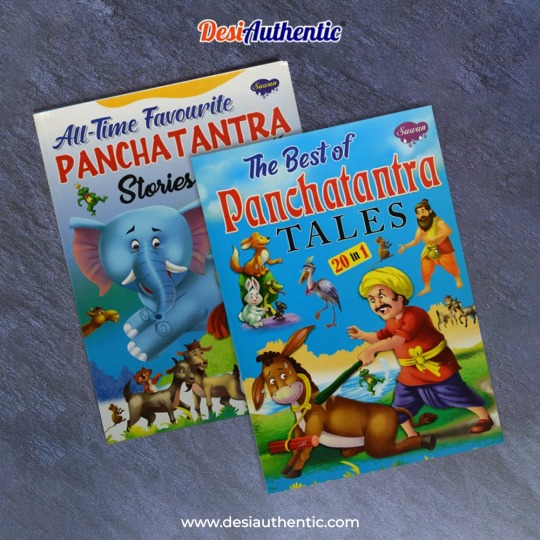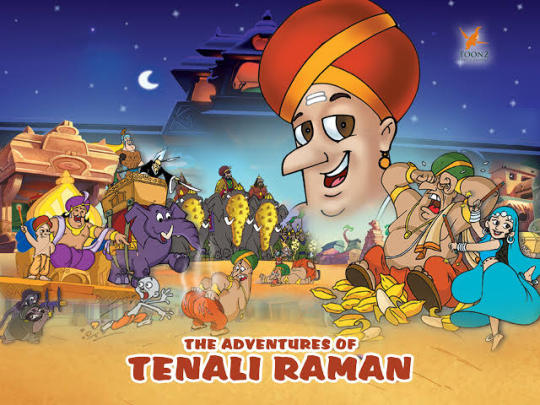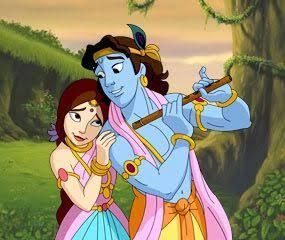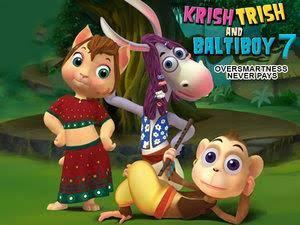#birbal
Note
Favorite historical figure?
I'm super late on this, but it's so, so hard to choose only one. Like picking a favorite kid.
One historical figure that I've been kind of obsessed with lately, though, is Birbal. He was one of the navaratnas (nine jewels) of the court of Akbar, the third of the Mughal Emperor, and acted as an advisor and military commander. He was among the first officers to become a part of Akbar's court, and was noted for his generosity, learning (he was an especially good poet), and tactical skill, to the extent that he could sway the emperor's mind on nearly anything.
Birbal and Akbar were almost unusually close (apparently they were never parted after their first meeting until death), and there have actually arisen, since the 1500s, a genre of moral tales called Akbar-Birbal stories, (largely) fictional stories about him using his wit and intelligence to openly question the emperor and humiliate his rivals, often with witty quips and jokes to soften the blow. He also appears as a character in one of Salman Rushdie's best novels, his semi-fictional The Empress of Florence.
But there are a lot of really interesting and even quite touching factual stories involving the bond between Akbar and Birbal. According to Ira Mukhoty's biography of Akbar:
"During an elephant fight organized in the grounds of Akbar’s court, one of the elephants, ‘unique for violence’, suddenly rushed towards Birbal, and seized him with his trunk. Akbar turned his horse around and galloped towards the elephant, charging at him, while all around him his soldiers and courtiers shouted out in alarm. The elephant then turned towards Akbar but, inexplicably, faltered, and Birbal was saved."
In fact, when he built the city of Fatehpur Sikri, Akbar "ordered ‘the erection of a stone palace for [Birbal].'" For the thirty years he served Akbar, he was never once censured by the emperor, which is incredibly uncommon, as even some of the highest ranking courtiers found themselves punished more than once for relatively minor mistakes. Apart from Akbar, Birbal also cultivated very strong bonds with two of the other navaratnas, the poet Faizi and the musician Tansen, as well as the historian-advisor Abu’l-Fazl.
In 1585, Birbal left the court of Akbar for the first time, to personally lead a fight against the Pashtun Yusufzais in Kabul, where he was ultimately killed, along with thousands of Mughal troops.
Akbar was completely inconsolable, and his remaining friends and family at court had to fight to keep him afloat.
"For two days and two nights he refused any food or water, did not attend to any state matters, left the bemused ambassador of Turan unattended, and turned away in grief from the jharoka window. Akbar ‘grieved him exceedingly, and his heart turned away from everything’, wrote Abu’l Fazl. Hamida Banu, who had come to the Punjab to meet with her son, had to entreat with the Padshah, along with his attendants, to resume his activities. The entire court mourned Birbal and the poet Keshavdas wrote verses in Brajbhasha in memory of him."
An enemy of Birbal's at court, the theologian Baduni, wrote in his diary of the emperor that, "He never experienced such grief at the death of any Amir." Akbar became haunted by the idea of Birbal's body being left unprotected and without a proper burial in the rocky mountains of Kabul.
"‘By this heart-rending mishap, the memory of the pleasures of his lofty company has become very bitter,’ Akbar admitted to Abu’l Fazl, ‘and this sudden calamity has greatly afflicted my heart…some obstacles have prevented me from seeing the body with my own eyes so that I might testify my love and affection for him.’"
For months, and even years, after Birbal's death, rumors would filter into court that he had been spotted actually alive through the empire. Every single time one reached him, Akbar would send men out to search for his lost friend, taken with the hope that Birbal would finally return to him.
In 1586, Akbar left Fatehpur Sikri, never to return. He spent the rest of his life on the move, heading further and further north, closer to where Birbal had perished.
A small poem, thought by historians to have been written by Akbar in the depths of his grief, still remains.
"He saw the poor and gave them all
But never distributed sorrows.
Now that he has given even sorrow to me,
Birbal has nothing left for himself."
#sorry for the long answer#ask response#charliesmydarling#akbar#birbal#mughal#history#not the stones#ask game
16 notes
·
View notes
Text
The Birbal Tales: From the Oral Traditions of India (Book, James Moseley, 2001)
You can borrow it digitally here.


What's got Birbal worried? Emperor Akbar's barber, who's envious of Birbal, just told Akbar that he dreamed that Akbar's father is surrounded by boring people in the afterlife, and that his father wants the wise and witty Birbal sent up there... the traditional way.
#internet archive#book#books#kids book#kids books#kid's books#kids' books#childrens books#children's book#children's books#india#birbal#2001#2000s#00s
1 note
·
View note
Text
The Foolish Thief
One day, a wealthy man came to Akbar’s court in hope to get help from Birbal. The man suspected that one of his servants had stolen from him.
The clever Birbal thought of a plan and gave all the merchant’s servants sticks of the same length. He also told them that the stick will grow three inches by tomorrow if they were the thief.
The next day, all the servants gathered around Birbal. He…

View On WordPress
0 notes
Text
कौवे की गिनती
एक दिन की बात है , अकबर ने अपनी सभा में एक सवाल पूछा। जिससे पूरी सभा के लोग हैरान रह गए। सभी उत्तर जानने की कोशिश करने लगे, तभी बीरबल अंदर आए और पूछा कि मामला क्या है। उन्होंने सवाल दोहराया। सवाल था, “शहर में कितने कौवे हैं?“ बीरबल तुरंत मुस्कुराए और अकबर के पास गए। उन्होंने उत्तर की घोषणा की; उनका जवाब था की, नगर में 21523 कौवे हैं। अकबर ने पूछा कि तुम उत्तर कैसे जानते हैं तब बीरबल ने उत्तर दिया, “अपने आदमियों से कौवे की संख्या गिनने के लिए कहें। यदि अधिक मिले, तो कौवे के रिश्तेदार उनके आस पास के शहरों से आएं होंगे यदि कम हैं, तो हमारे शहर के कौवे जरूर शहर से बाहर रहने वाले अपने रिश्तेदारों के पास गए होंगे।” यह जवाब सुनकर, राजा खुश हुआ और बीरबल की बुद्धि की काफ़ी प्रसंशा करने लगा। इस कहानी से हमें ये सीख मिलती है की आपके उत्तर में सही स्पष्टीकरण होना उतना ही महत्वपूर्ण है जितना कि सही उत्तर का होना।
0 notes
Text
#कौवे की गिनती#quest#shorts#youtubeshorts#story#kahani#questkahaniya#akbar#birbal#एक दिन की बात है#अकबर ने अपनी सभा में एक सवाल पूछा। जिससे पूरी सभा के लोग हैरान रह गए। सभी उत्तर जानने की कोशिश कर#तभी बीरबल अंदर आए और पूछा कि मामला क्या है। उन्होंने सवाल दोहराया। सवाल था#“शहर में कितने कौवे हैं?“ बीरबल तुरंत मुस्कुराए और अकबर के पास गए। उन्होंने उत्तर की घोषणा की; उ#नगर में 21523 कौवे हैं। अकबर ने पूछा कि तुम उत्तर कैसे जानते हैं तब बीरबल ने उत्तर दिया#“अपने आदमियों से कौवे की संख्या गिनने के लिए कहें। यदि अधिक मिले#तो कौवे के रिश्तेदार उनके आस पास के शहरों से आएं होंगे यदि कम हैं#तो हमारे शहर के कौवे जरूर शहर से बाहर रहने वाले अपने रिश्तेदारों के पास गए होंगे।” यह जवाब सुनक#राजा खुश हुआ और बीरबल की बुद्धि की काफ़ी प्रसंशा करने लगा।#इस कहानी से हमें ये सीख मिलती है की आपके उत्तर में सही स्पष्टीकरण होना उतना ही महत्वपूर्ण है जि
0 notes
Text


When your kid wants to know more about India, you can't go wrong with these mythological, historical, moral story books for kids. From the Mahabharata to modern-day mythology, these stories are a great way to introduce your child to India's rich history.
These books are full of information about the culture and traditions of India. These stories will also help your kids learn about the different places in India and the people who lived there.
These stories are perfect for bedtime reading or as a quiet evening before homework time.
#desiauthentic#desiauthenticproducts#books#storybooks#childrensbooks#Panchatantra#mythology#mahabharat#myth#indianmythology#BhagatSingh#Birbal
0 notes
Text
Akbar Birbal Stories अकबर-बिरबलची कथा: जेवल्यानंतर झोपणे
Akbar Birbal Stories अकबर-बिरबलची कथा: जेवल्यानंतर झोपणे
Akbar Birbal Stories अकबर-बिरबलची कथा: जेवल्यानंतर झोपणे
दुपारची वेळ होती, राजा अकबर आपल्या दरबारात बसून काहीतरी विचार करत होता. अचानक त्याला बिरबलाने सांगितलेली गोष्ट आठवली. त्याला आठवले की एकदा बिरबलाने त्याला एक म्हण सांगितली होती, ती अशी – खाल्ल्यानंतर पडून राहणे आणि मारल्यानंतर पळणे हे प्रौढ माणसाचे …
दुपारची वेळ होती, राजा अकबर आपल्या दरबारात बसून काहीतरी विचार करत होता. अचानक त्याला…
View On WordPress
0 notes
Text
Sold only the Well not the Water!
Once a man called Shah sold his well to a farmer.
On the next day, the farmer came to take water from the well to irrigate his paddy.
Suddenly Shah appeared and told the farmer to stop.
The farmer stopped and asked why?
Shah replied in an assertive voice “I sold you only the well, not the water inside the well”.
The farmer was shocked and said “This is not fair, please don't cheat me”
But Shah mercilessly said, “The water inside the well belongs to me, so you have no right to use them.”
The farmer left the paddy sadly for being cheated.
On the next day, the farmer went to King Akbar’s court and he said everything that happened to him.
Immediately king Akbar summoned Birbal and ordered him to deal with this matter quickly and inform him back.
Birbal summoned Shah and asked for the detail, He still said “I sold only the well to the farmer, not the water, so the farmer has no right to use the water from the well.”
Birbal smiled and thought for some time.
He told to Shah “ You are correct! The water belongs to you. Since you sold the well to this farmer. You have no right to keep your water in his well. Please remove all the water from the well or pay rent to this farmer for keeping water in his well.”
Now Shah realised he made a big mistake.
He ran into King Akbar and begged pardon for his mistake and assured him he will never do this mistake again.
The Farmer thanked Birbal and King Akbar appreciated and rewarded Birbal for his brilliant judgement.
#akbarbirbal#akbarbirbalfanclub#akbarbirbalepisode#comedy#salimvasu#vishaalkotian#bigmagic#wewantnewseasonofakbarbirbal#comedyshow#history#akbar#kikusharda#birbal#jodaakbar#hazirjavabibirbal#vasu#salim#harmushkilkahalakbarbirbal#yashkantsharma#kishwermerchant#delnaazirani#sumitarorra#pawansingh#lol#fullonlol#akdha#jodha#comedian#loughter#funny
0 notes
Text
Cartoons from my country, India. We are this. It greatly differs from how foreign animation depicts us. We have a diverse culture and we're seen through a narrow lens. Some of my favourite Indian Cartoons-









1. Tenali Raman
2. Akbar and Birbal
3. Krishna
4. Pinaki and Happy the bhoot bandhus
5. Roll no. 21
6. Krish Trish and Baltiboy
7. Pupi
8. Simple samosa
9. Chhota Bheem
There's more but these are my top favourite and I love Indian Cartoons .
We have all skin types and colours too but we're all black and brown in foreign animation. There's more to us than snake charming and scary pujas. I hope that it will change one day.
#India#indian animation#desi#tenali raman#akbar and birbal#lord Krishna#krish trish and Baltiboy#pinaki and happy#roll no. 21#pupi#cartoon#chhota bheem#desiblr#desiblogger
177 notes
·
View notes
Text
i think i had to acclimate a little to the violence of the devourers (it doesn't bother me but this is mixed with like.....what FEELS like a very familiar south asian folk writing style so it was just jarring) but im in it and im finally hitting my stride. every thing that is happening is frankly an insane situation to be in
#reading: the devourers#the transcribing itself but also the roadtrip like ack. crazy#but yeah maybe im just projecting but this feels like......omg it reads like a translation of that old ghost on the kings back story#i have so many english prints of folk tales from india cause thats how my family kept me busy lmao#like normal ass akbar/birbal stories and a looooot of ghost stories
10 notes
·
View notes
Text
They didnt even have to change his name to pavitran. Peter benjamin the mallu catholic boy with a horrible guilt complex would have worked just fine
#im just saying. didnt need to make him hindu OR give him that akbar birbal cartoon wala dress also#but what do i know#hes probably a northie too#cause what even are south indians
5 notes
·
View notes
Text

Legendary Wit: Introducing Akbar and Birbal Stories to Kids in English
Welcome to a world where wit reigns supreme and wisdom is the currency of the realm. In today’s blog post, we embark on an adventure through the legendary tales of Akbar and Birbal, inviting children to discover the timeless charm and enduring lessons hidden within these captivating stories retold in English.
Unveiling the Legacy of Akbar and Birbal
Akbar, the illustrious emperor of the Mughal dynasty, and Birbal, his trusted advisor, have become synonymous with wit, intelligence, and moral integrity. Their legendary tales, passed down through generations, continue to captivate audiences of all ages. But what makes these stories so enduring? Let’s explore:
The Power of Wit: At the heart of Akbar and Birbal stories lies the irresistible charm of wit and humor. Through their clever exchanges and ingenious solutions to complex problems, Birbal demonstrates the power of intellect and quick thinking, inspiring children to embrace their own inner wisdom.
Timeless Wisdom: Beyond the laughter and amusement, each Akbar and Birbal story carries a valuable lesson or moral principle. Whether it’s the consequences of deception, the importance of honesty, or the virtue of compassion, these tales offer timeless wisdom that resonates with children and adults alike.
Cultural Heritage: Set against the backdrop of medieval India, these stories provide a window into the rich tapestry of Indian culture, history, and tradition. From the opulent courts of the Mughal empire to the bustling streets of ancient cities, children are transported to a bygone era filled with intrigue and adventure.
Universal Appeal: Despite their historical setting, the themes explored in Akbar and Birbal stories are universal in nature, transcending geographical and cultural boundaries. Children from diverse backgrounds can relate to the characters’ struggles, triumphs, and moral dilemmas, fostering empathy and understanding.
Benefits of Introducing Akbar and Birbal Stories to Kids
The benefits of exposing children to Akbar and Birbal stories are manifold, shaping their character, intellect, and worldview in profound ways:
Critical Thinking Skills: As children follow Akbar and Birbal’s clever exploits, they develop critical thinking skills such as problem-solving, decision-making, and logical reasoning. They learn to approach challenges with creativity and resourcefulness, empowering them to navigate the complexities of life with confidence.
Cultural Appreciation: Through the exploration of Indian culture and history, children gain a deeper appreciation for diversity and multiculturalism. They learn to respect and celebrate different customs, traditions, and perspectives, fostering a sense of global citizenship and cultural awareness.
Moral Development: The moral lessons embedded within Akbar and Birbal stories serve as guiding principles for children, teaching them important values such as honesty, integrity, kindness, and empathy. By witnessing the characters’ triumphs and failures, children learn valuable lessons about right and wrong, and the consequences of their actions.
Language Proficiency: Reading or listening to Akbar and Birbal stories in English enhances children’s language proficiency and literacy skills. They expand their vocabulary, improve their reading comprehension, and gain exposure to idiomatic expressions and literary devices, laying a strong foundation for academic success.
Social and Emotional Learning: Through the interactions between characters and the resolution of conflicts, children develop social and emotional intelligence. They learn to understand the perspectives of others, regulate their emotions, and communicate effectively, fostering healthy relationships and interpersonal skills.
Where to Find Akbar and Birbal Stories in English
Fortunately, there are numerous resources available for children to explore and enjoy Akbar and Birbal stories in English:
Books: A wide selection of books retell Akbar and Birbal stories in simple and engaging language, making them accessible to young readers of all ages. Look for beautifully illustrated editions that capture the imagination and bring the stories to life.
Online Platforms: Many websites and digital libraries offer a treasure trove of Akbar and Birbal stories in English, available for reading or listening online. These platforms often feature interactive elements, quizzes, and games that enhance the reading experience and make learning fun.
Educational Apps: There are several educational apps specifically designed to introduce children to Akbar and Birbal stories in a fun and interactive way. With animated illustrations, audio narration, and interactive features, these apps provide an immersive learning experience that children will love.
Storytelling Events: Local libraries, schools, and cultural centers may host storytelling events or workshops where children can listen to Akbar and Birbal stories told by professional storytellers. These live events create a magical atmosphere that captivates young audiences and sparks their imagination.
Tips for Making Akbar and Birbal Storytime Interactive and Engaging
To make Akbar and Birbal storytime a memorable experience for children, consider incorporating the following tips:
Act Out the Stories: Encourage children to act out their favorite scenes from Akbar and Birbal stories, either through role-playing or by creating their own puppet shows or skits. This hands-on approach allows them to immerse themselves in the story and bring the characters to life.
Discuss the Moral Lessons: After reading or listening to a story, take time to discuss the moral lessons and themes with children. Encourage them to reflect on the characters’ actions and choices, and consider how they can apply these lessons to their own lives.
Create Artwork Inspired by the Stories: Encourage children to express their creativity by creating artwork inspired by Akbar and Birbal stories. They can draw illustrations of their favorite scenes, design their own book covers, or even create comic strips retelling the stories in their own words.
Organize a Storytelling Contest: Host a storytelling contest where children can take turns retelling their favorite Akbar and Birbal stories in their own words. This not only helps improve their storytelling skills but also fosters confidence and public speaking abilities.
Follow Up with Related Activities: Extend the learning experience beyond storytime by incorporating related activities and projects. Children can solve puzzles, write their own Akbar and Birbal stories, or even cook traditional Indian dishes inspired by the stories.
In Conclusion: Nurturing Young Minds with the Wit of Akbar and Birbal
In the enchanting world of Akbar and Birbal, laughter and learning go hand in hand, and wisdom awaits around every corner. By introducing children to these timeless stories in English, we spark their curiosity, ignite their imagination, and instill valuable lessons that will guide them on their journey through life. So let us embark on this adventure together, unlocking the secrets of the past and paving the way for a brighter future filled with laughter, learning, and legendary wit.
0 notes
Text
Donkey’s Tail
Once Akbar gifted a very precious necklace to his queen which she safely in her room. But unfortunately, one day necklace was misplaced and queen was unable to locate it.
Then Akbar came to know that not only the necklace but few other precious things have also gone missing in the past few days from his palace. Unable to resolve the situation, he asked Birbal to help.
Birbal brought along a…

View On WordPress
0 notes

